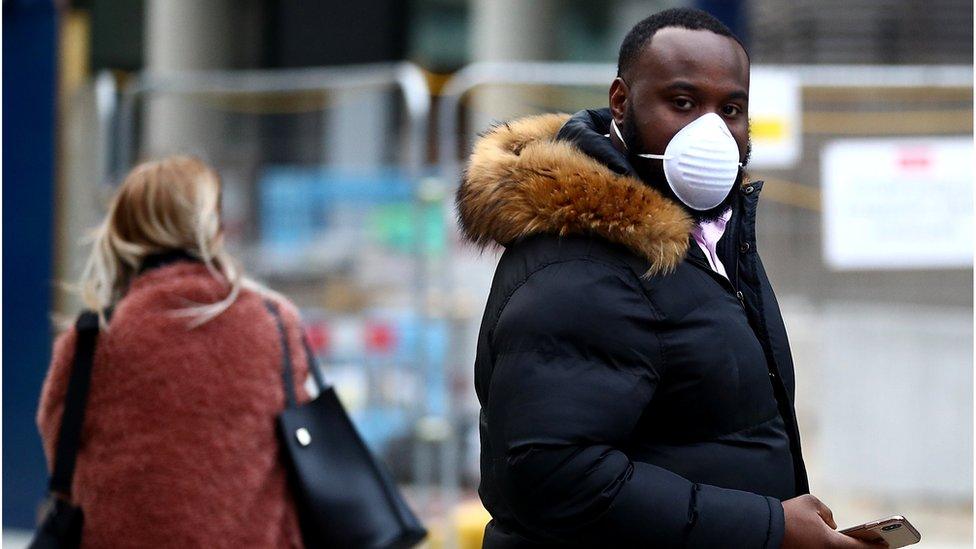Coronavirus: Shoppers face 'essential items' confusion
- Published
- comments
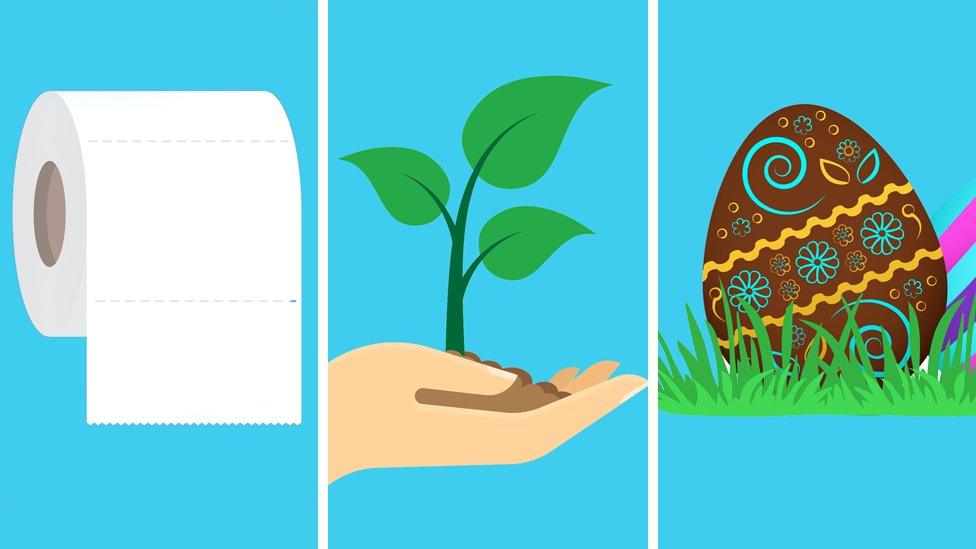
Easter eggs, milk, exercise weights, garden plants, shampoo, children's colouring books - just what exactly should you go out shopping for during the coronavirus lockdown?
The government's restrictions brought in on 23 March says people should only be leaving their houses for "very limited purposes" - one of those is to buy "basic necessities".
But there's been confusion over what this actually means.
One police force said it had taken action against, external two people who had met at a house party and were "going to the shops for non-essential items".
Another police force said it was "disappointed" to see people out buying bags of compost and plants , external- saying this was not "essential shopping".
While some convenience stores have complained they've been told Easter eggs are non-essential goods.
It's led some shoppers to question what they can buy when heading to the shops.
Allow X content?
This article contains content provided by X. We ask for your permission before anything is loaded, as they may be using cookies and other technologies. You may want to read X’s cookie policy, external and privacy policy, external before accepting. To view this content choose ‘accept and continue’.
Sue Davies, head of consumer protection at Which?, said it was important for the public to have all the information they needed so they could act responsibly during the lockdown.
"Shoppers should follow government advice and shop as infrequently as possible during the lockdown, stocking up on food, medicine and essentials only when necessary.
"If there is confusion among consumers about which products are essential, it is really important that the government provides the utmost clarity about what is expected of people, so that the vast majority who want to act responsibly have all the information they need to do so."
What are the rules?
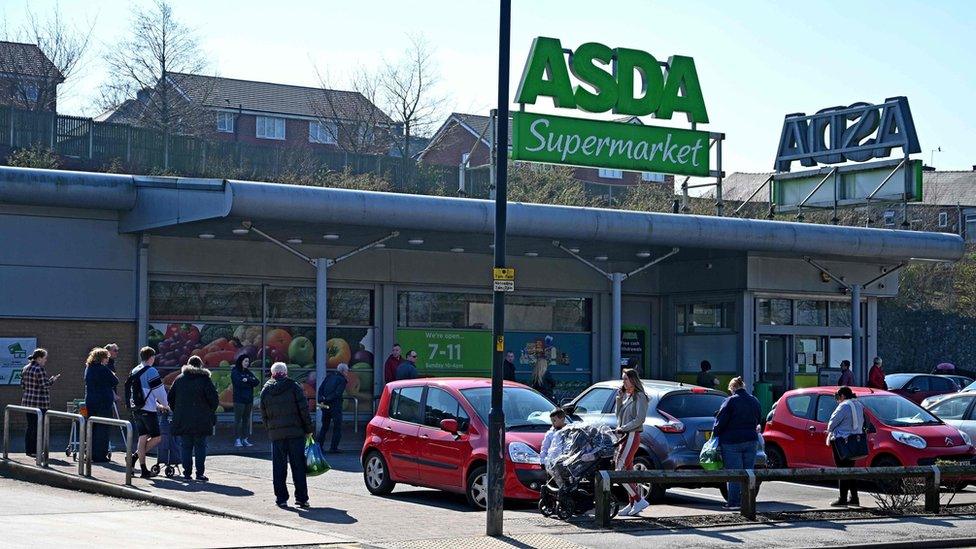
Supermarkets have been allowed to stay open during the restrictions
The government says you should only leave the house for very limited purposes, external which includes "shopping for basic necessities, for example food and medicine, which must be as infrequent as possible".
It's allowed "essential retailers" to stay open which includes places such as supermarkets, pharmacies, off-licences, petrol stations, newsagents, home and hardware stores and garages.
But crucially, there are no restrictions on what products these businesses can sell.
Retail analyst Andrew Busby, from consultancy Retail Reflections, thinks it's difficult for the government to offer more rules on what you should be going out shopping for.
"A basic necessity from one person to another might be viewed completely differently.
"You could say, 'Is a bicycle shop a necessity?' It's been deemed a necessity because you have to go out and get exercise.
"I can't see a situation where the government could ever list what is a necessity. If they really want to that's another definition of lockdown altogether.
"The government has to manage a delicate balancing act. If you lose the population emotionally there's far more of a risk they won't adhere to the guidelines they're being told.
"We have to keep focused on what we're trying to achieve but, within that, be allowed to use our common sense."
What do shops say?
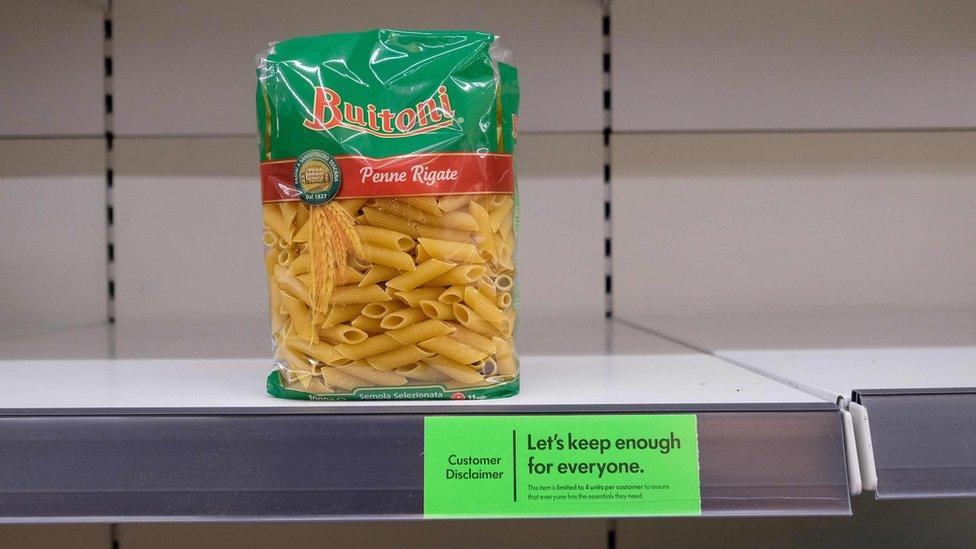
There's been a huge demand for products such as pasta during the coronavirus pandemic
Most supermarkets haven't told shoppers what should be classed as priority or essential goods - but have put restrictions on the number of items you can buy of certain products.
These have included paracetamol, toilet roll, hand sanitiser, baby milk, pasta, rice and canned goods.
Amazon says it's prioritising the intake and dispatch of certain items that are most needed by its customers during the lockdown - including food, health and personal care products, books and items needed to work from home.
Boots - which is allowing customers to collect online orders in its stores - has stopped selling items including perfume, electrical beauty and self-selection make-up on its website.
It said this was to "help everyone have access to healthcare and essential items".
But some shops appear to be stopping customers from buying goods they consider to be "non-essential".
Mum-of-two Becki Jones, 41, from Sheffield, went out to buy food and cleaning products for her family after spending more than a week in isolation.
While in the shop she asked for some compost as she has her own vegetable patch, but was told by a staff member they couldn't sell it as it was "non-essential".
"I said, 'Why can I buy a chair for the garden and a gnome for my garden but compost is non-essential?' They couldn't give me an answer. It's ridiculous.
"It's the one thing that's useful, if you grow your own veg you don't need to buy it.
"I left very confused and slightly annoyed as to why it wasn't essential."
Time to do up the garden?
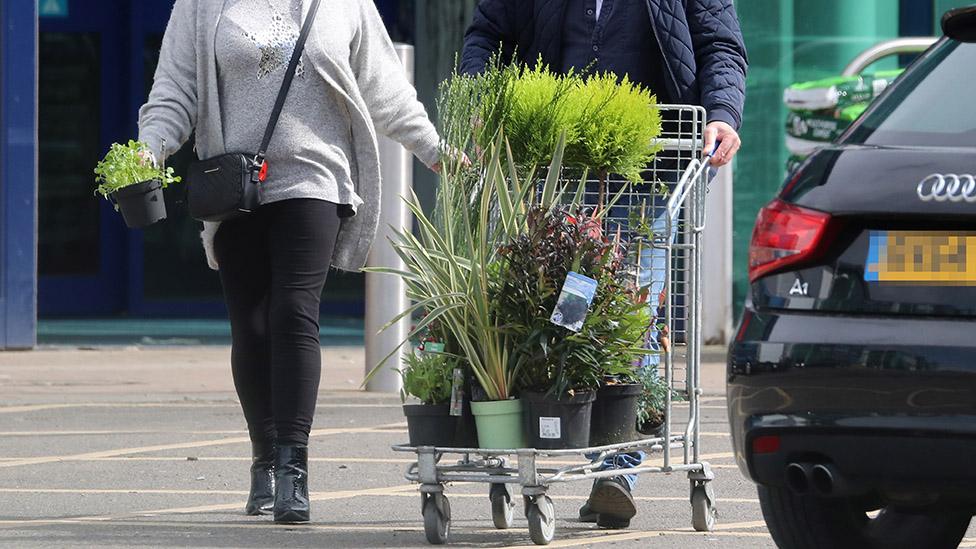
Shoppers were spotted buying plants during the lockdown
But some shoppers have questioned why certain stores are open to sell what they consider to be non-essential items.
Police in Peterborough revealed they had pulled over one motorist who had a car full of people and said he was going to Halfords to look at a new bike.
One shopper told the BBC they had seen people coming out of homeware stores "with flatbed trollies with compost, plants and pots" and questioned why they were still being allowed to trade.
Some people say this could expose staff and shoppers to possible risk.
Allow X content?
This article contains content provided by X. We ask for your permission before anything is loaded, as they may be using cookies and other technologies. You may want to read X’s cookie policy, external and privacy policy, external before accepting. To view this content choose ‘accept and continue’.
Allow X content?
This article contains content provided by X. We ask for your permission before anything is loaded, as they may be using cookies and other technologies. You may want to read X’s cookie policy, external and privacy policy, external before accepting. To view this content choose ‘accept and continue’.
Dominic Watkins, head of retail and food at law firm DWF, says the government guidance is "about as clear as it can be" and "does not mean shopping for discretionary purchases are permitted".
"We should not be shopping for non-essential products such as a new sofa or flowers for the garden.
"However, it is recognised that there will be things that require fixing around the house during this time and therefore stores need to be available to provide those goods, and that is the reason that home and hardware stores are permitted to open.
"Unless goods are essential for the upkeep, maintenance or function of the house, then people should not be trying to purchase them."

A SIMPLE GUIDE: What are the symptoms?
NEW GUIDANCE: What must I do?
NEW RESTRICTIONS: What are they?
LOOK-UP TOOL: Check cases in your area
MAPS AND CHARTS: Visual guide to the outbreak

He said there was more of a grey area around what people purchased while they're also shopping for essential items.
"If they are in the supermarket or DIY store, clearly it also sells non-essential items and once you are there, there is no legal reason why you cannot purchase them."
The government said the coronavirus restriction guidance was "constantly under review".
It said the rules that existed around shops was about "the closure of certain retail premises - not about the products that business can or cannot sell".
It added: "It remains a decision for individual shops to choose which products they stock."
- Published1 April 2020
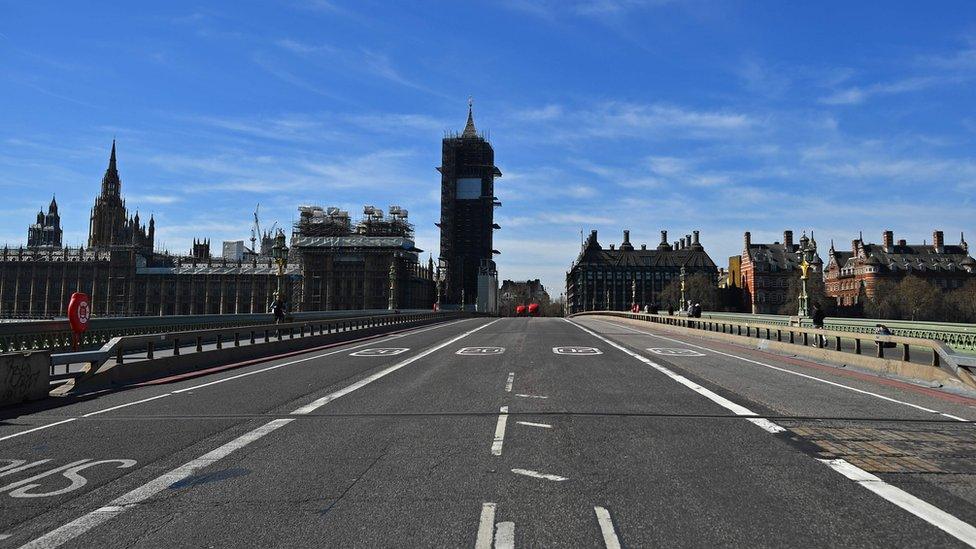
- Published16 April 2020
- Published2 April 2020
